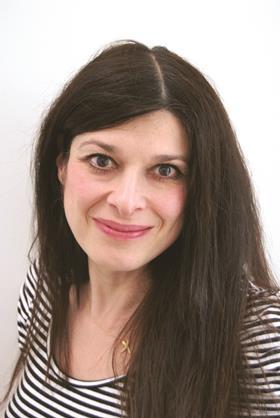While around one in seven people in the UK is neurodivergent, representation in the workplace remains low. And despite increased focus on diversity and inclusion, the number of employment tribunal cases related to neurodiversity is going up.

Jodie Hill, founder and managing partner at Thrive Law, the UK’s first law firm with wellbeing and mental health at its heart, is an employment lawyer who is neurodivergent. In addition to her legal practice, Hill provides training and advice to organisations on supporting neurodivergent employees, and creating a genuinely diverse workplace where everyone can thrive.
While this is commendable, for employers, recognising the unique needs of their (otherwise competent) neurodivergent employees is also about protecting their own interests. In 2022 a dyslexic Marks & Spencer worker who was made redundant due to inaccuracies in her emails and written work was awarded more than £50,000 when an employment tribunal ruled that M&S managers ignored the impact her dyslexia had on her work, including her ability to concentrate and communicate.
Technology can play a big part in supporting neurodivergent employees. Adjustments range from noise-cancelling headphones and standing desks, to software like note-taking apps, project management and collaboration tools, to learning how to leverage the features built into popular systems like Apple iOS and Microsoft Word. But beyond the tech, the biggest challenge for organisations is ensuring they communicate effectively with neurodivergent employees to identify their limitations and the adjustments they need.
Hill outlines some of the technology that she uses to manage Thrive Law and her own work. ‘AI note-taking is helpful. Having tried a few different applications, we chose Fireflies.ai because it allows you to record in person as well as online. You get a transcript and a summary of the call. It helps me to focus more on meetings, as it takes down all the details and I only write down my actions.’
AI note-taking helps Hill and her colleagues who find it challenging to remain present in meetings, while capturing the information they need. ‘It joins all your meetings automatically, so you don’t forget and if you want to do a meeting in person there’s an app on the phone, so you are looking at the person rather than looking at the screen. It improves efficiency and customer service as well as making the workplace more inclusive.’
Appointment-booking software such as Calendly and zcal are useful too ‘because organising things can be a challenge when you’re neurodivergent, so you simply send someone a link and they book in themselves. It saves time and also stress,’ says Hill.
Not all adjustments mean investing in new systems and applications. ‘We got some training on how we can use iOS standard features like reminders, do not disturb and other accessibility functions which limit distractions and set reminders. We encourage people to make use of the functionality they already have,’ she adds.
‘Microsoft Word text-to-speech and speech-to-text features mean that I can dictate a lot of what I write and reword it later. Sometimes my brain is going so fast that I forget what I’m going to say, so I use the dictate function to write documents and emails,’ says Hill.
Text-to-speech is another value add for ADHD. ‘When I read a really long document my brain tends to jump around, so I find it helpful to highlight sections and get Word to read it out to me as I read it.’
Everyone at Thrive uses project management tools such as Asana, Trello and Monday.com. ‘Everyone hated them at first but now everything is on a [virtual] board, so it means you can’t forget stuff. Not only does it improve communication, but everyone is very clear [about] who’s responsible for what. It also means I feel my brain is not as full. Things are less overwhelming because I know that if I’ve got to do something it’s on the board, so I go to the board every day.’
Online project management tools mean that everything is in one place, which is helpful for Hill’s ADHD, which makes it impossible for her to use notebooks, post-its and diaries. ‘I have over 100 half-used notebooks! And if you’re neurodivergent, you don’t remember what book you wrote something in, or where you put it, whereas if you make notes on iPhone or reMarkable, your notes are shared across all devices and you can also share them, so I can write a note and send it to my executive assistant to follow up.’
Thomas Perform psychometric profiling is used to help people communicate – everyone can see each other’s profile – and as a management tool to find the right person for roles and tasks. ‘Neurodivergent people struggle to read people, and people don’t always read us well. For me, this has been a game-changer.’
Hill uses Champion Health to focus on wellbeing. ‘Twice a year everyone does an online survey, and as the business owner, I get a report. This tells me things like 45% of people are struggling with their workload. That data-driven approach helps me understand the wellbeing issues across the organisation.
‘On an individual basis, everyone gets their own portal, like a Netflix of wellbeing, where they can access resources,’ Hill explains. ‘It’s a combination of mental health, neurodiversity and learning and development. It means people can learn in a way that’s best for them. So someone who is neurodivergent finds it hard sitting in a training session, but being able to dip in and out of calls and videos is really helpful.’
The Thomas Perform and Champion Health platforms are used to build people’s personality traits into work allocation. ‘Instead of focusing on disability and what people can’t do, you’re finding the best people for each role and project, it’s about removing the labels and focusing on how everybody works best,’ says Hill.
‘And even better, it removes the stigma around neurodiversity. It’s about combining what we need as an organisation to be more inclusive, and finding the adjustments [neurodivergent team members] need, and that is often missed when we think about what technology can do.’
Joanna Goodman is a freelance journalist
































No comments yet